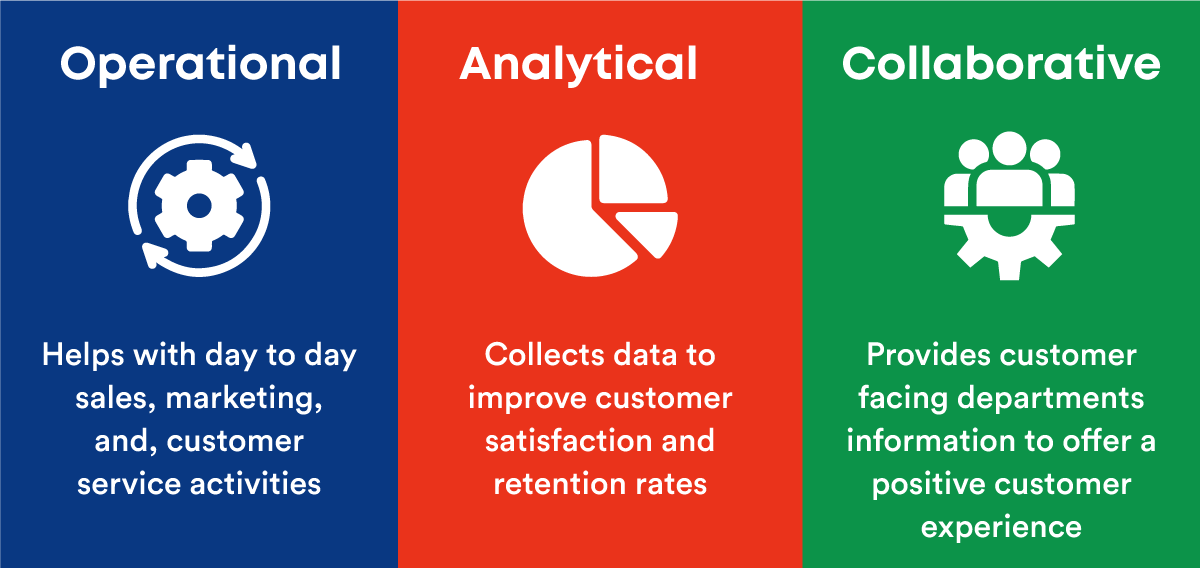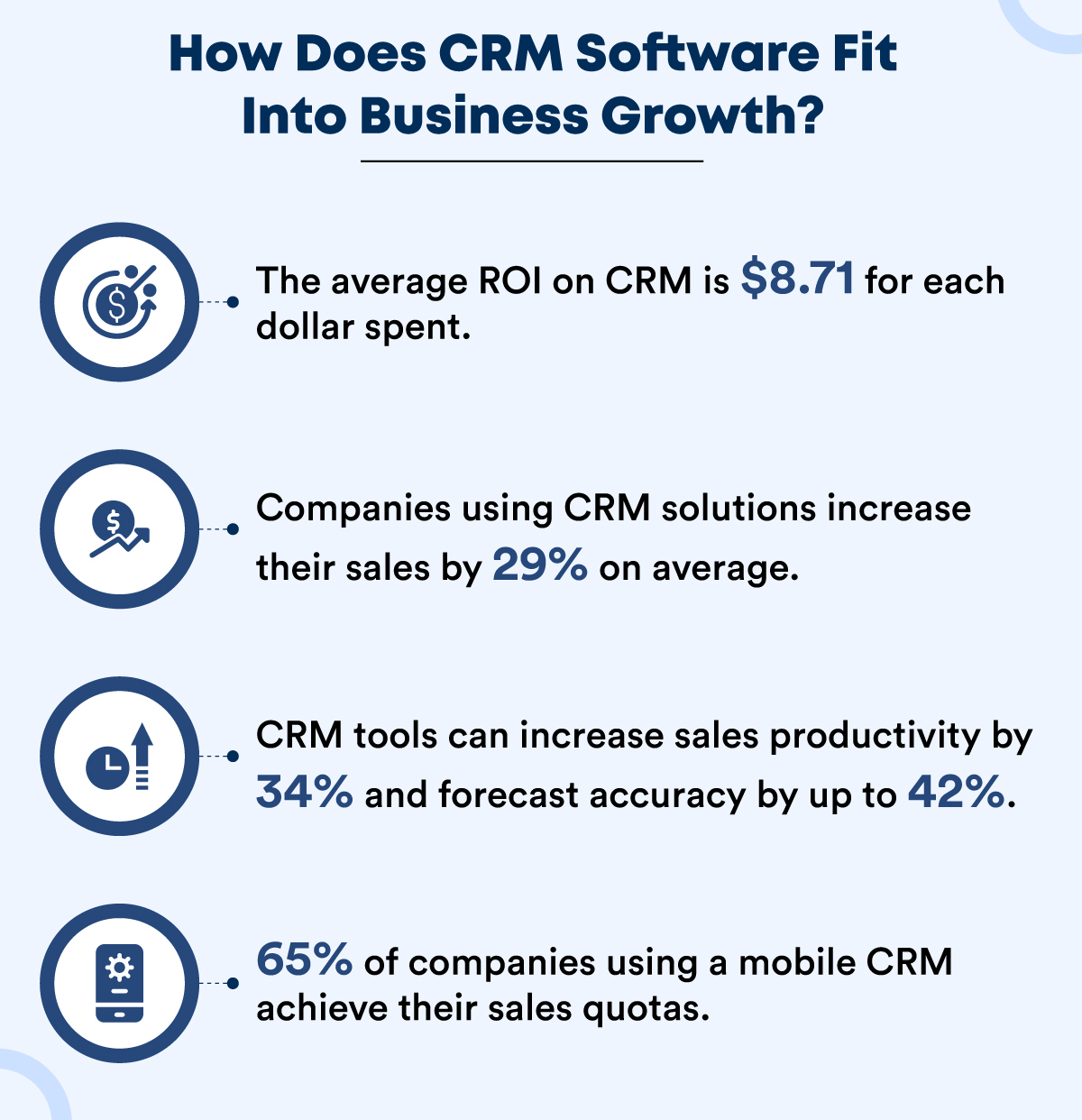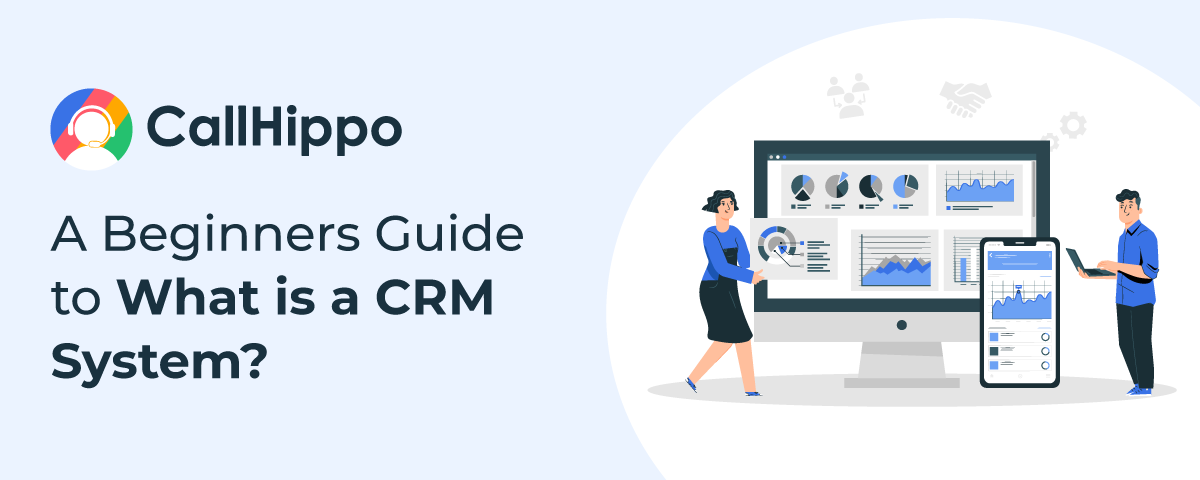CRM stands for customer relationship management. CRM is a software system that enables businesses to track all customer information in one place. A CRM system replaces spreadsheets, databases, and apps.
If you’re not sure what a CRM is, how businesses are using CRM software and why your business also needs to invest in it right away, or how it can help in increasing bottom-line results, you’re at the right place.
What is CRM Software?
CRM software is a tool that helps businesses capture, organize, and analyze customer information to manage customer relationships more efficiently. CRM software is a central repository of customer information that gives you a complete picture of your customers.
Modern CRM platforms integrate with most business tools, enabling you to create an ecosystem that provides the most up-to-date information and boosts operational efficiency.
What Does CRM Software Do?
Contact management is the core function of CRM software. It helps you store and manage data for every contact, from leads to business partners. When integrated with third-party business tools, CRM can automatically collect data from different sources.
At the most basic level, enterprise CRM systems can track customer interactions through:
- Contact forms
- Emails
- Phone calls
- Live chat
- Social media
This will benefit every department in the organization. For instance,
- It provides support teams with the purchase history and previous interaction details to help them provide the best possible solution.
- It gives digital marketers access to details that will help them create targeted campaigns.
- The sales department can see the products the customer has shown interest in or the campaign that drove them to the website before making a call.
That said, let’s take a look at the key functionalities of a CRM in detail.
- Lead management: You can track and manage information about your leads, such as their personal details (name, phone number, and email address), how they landed on your website, the product they have shown interest in, etc.
- Customer management: Customer management includes data related to your existing customers, including their personal details, the products they’ve purchased, subscriptions (if any), and previous interactions.
- Marketing automation: Most modern CRM platforms have marketing automation capabilities to help you automate tedious processes, such as follow-up, appointment scheduling, or publishing social media posts. It helps keep leads engaged with minimal effort.
- Sales automation: You can create custom workflow automation rules to automate tedious processes. Integrating CRM software with a retail operation system is a vital thing to help ensure streamlined online and offline sales and customer information. CRMs can also automatically enrich customer data from the web and track calls and meetings to help you spend more time closing deals.
- Analytics: CRM software comes with in-built analytics tools that offer in-depth insights into sales trends, marketing campaigns, activity reports, and customer satisfaction.
- Artificial intelligence: Modern CRM solutions are packed with AI capabilities that help identify deals that are more likely to close, analyze customer sentiment, and reduce customer churn.
Types of CRM Software
There are three types of CRM systems:
- Collaborative CRM
- Operational CRM
- Analytical CRM

Let’s understand them in detail.
1- Collaborative CRM Software
Collaborative CRM software, also known as strategic CRM, is an application that brings together a company’s marketing, sales, and customer support teams together. This improves collaboration and synchronicity between departments, even if they’re located in different regions.
For instance, an agent working in a call center will have all the information about the interactions with the customer over email. This will enable them to provide better solutions (without requiring customers to repeat themselves).
2- Operational CRM Software
Operational CRM software helps streamline your business processes by automating sales, marketing, and customer service workflows. It also provides tools to visualize customer journeys better, even if there are numerous touchpoints.
With operational CRMs, you can automate:
- Marketing: Coordinating email campaigns, distributing content, reaching out to prospects at scale, etc.
- Sales: Forecasting, email scheduling, meeting scheduling, creating deals, and more.
- Customer Service: Delegate service tasks to reps via ticketing systems, send automated responses, etc.
3- Analytical CRM Software
Analytical CRM software focuses on gathering and analyzing data to help companies improve their products and services, one of which is operational analytics. Examples include customer preferences, behavior, and contact information.
These insights help sales reps better understand what customers need to send targeted messages and increase retention rate.
Benefits of CRM Software
According to Grand View Research, over 91% of organizations with more than ten employees use CRM systems. So now the question is, why do so many companies invest in CRM software? Let’s understand.
1- Provide Better Customer Service
CRM software helps businesses provide the best possible customer service to every individual. Here are some ways CRM helps improve customer experience.
- Personalized Customer Service: Knowing the history of interactions with each customer enables you to deliver exceptional customer service every time. CRM also equips your team with detailed interaction notes, enabling you to see who solved the customer’s query.
- Improve Resolution Time: Again, when you know what product a customer has purchased and their previous interactions, you can provide a better and more satisfying customer experience.
2- Boost Your Sales
Sales CRM software helps streamline your sales process by providing better visibility and helping prioritize leads.
- Improved Visibility: Sales reps can see what a lead has done, allowing them to personalize their messages and boost engagement. For example, when you see a customer has watched the demo video, you can encourage them to sign up for a free trial. You can also convert MP4 to MP3 version of the video and send them a follow-up email with a link so they can listen to it on the go.
- Better Prioritization: CRM helps you score leads based on their likelihood of converting. This allows salespeople to follow up with the right people at the right time and close deals faster.
- Automated Follow-up: Follow-up is one of the most tedious tasks of the sales process. However, with a CRM, you can create automated campaigns to follow up with leads to ensure you don’t miss any opportunities.
3- Create Better Marketing Campaigns
Marketing teams can also benefit from CRM systems in multiple ways. Here are some of them.
- Better Insights: With all the customer information consolidated in one place, marketing teams can better understand patterns and trends that lead to increased engagement. For example, they can identify what keywords/phrases most customers use when talking to a sales or support agent. They can then optimize their campaigns accordingly to drive more engagement.
- Improved Segmentation and Personalization: CRM allows you to segment customers based on your criteria. This, in turn, helps you create personalized messages for each customer group to increase engagement.
- A/B Testing: Marketers can run A/B test campaigns to determine what works better. They can divide leads or customers into two groups and send two different messages. They can then analyze which message received a better response right in the CRM.
When Is the Right Time to Invest In CRM Software?
The saying, “the best time to invest was ten years ago, the next best time is today,” is highly suitable for CRM systems. From the very beginning after MVP development for startups phase you should consider using CRM systems.
You might be thinking, “does my company really need a CRM?” I mean, you might already be doing fine with spreadsheets and all, so why invest in a CRM now?
Most businesses begin managing customer information on spreadsheets. However, over time, things start getting complicated. Besides, when you store information in different places, it will most likely lead to discrepancies and duplication.
However, with a CRM, you eliminate the need for managing spreadsheets or even manually entering data, for that matter. By integrating CRM software with third-party tools, you can automatically capture customer information. This gives you access to the most up-to-date information without too much effort.
The good thing about CRM software is that you can find a solution within your budget. In fact, there are numerous free CRM systems as well.
You May Also Read : 8 Best Free CRM Software
How Does CRM Software Fit Into Business Growth?
First things first, a CRM solution makes life easier and helps improve productivity and efficiency.

These numbers indicate that organizations leveraging CRM technology are more likely to perform better than those that don’t.
Besides, CRMs grow with your company, enabling you to perform better even when you employ thousands of people or have millions of customers.
Wrapping Up
CRM software has quickly become an integral part of every organization. They enable you to consolidate customer information and equip your team with the most up-to-date data. As a result, you will be able to provide better service to every customer and delight them beyond expectation!
Still not sure if you need a CRM? Well, here’s the purpose of CRM systems in the modern world. See if it is what you’re looking for!

Subscribe to our newsletter & never miss our latest news and promotions.










